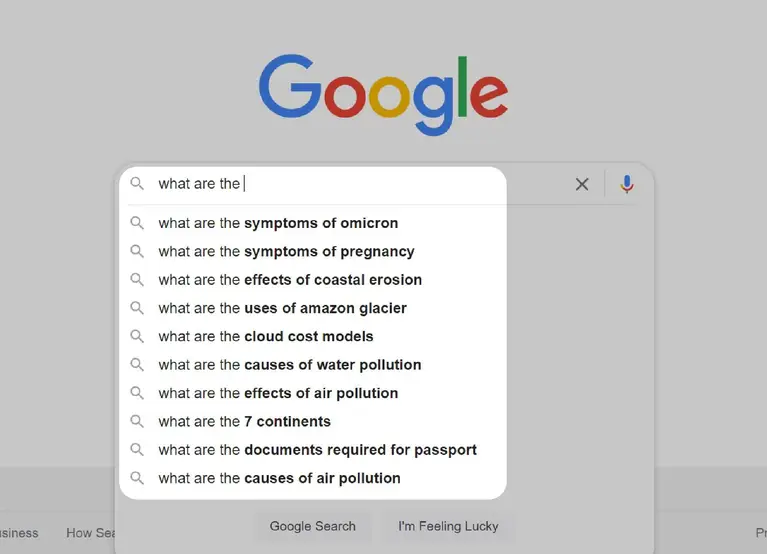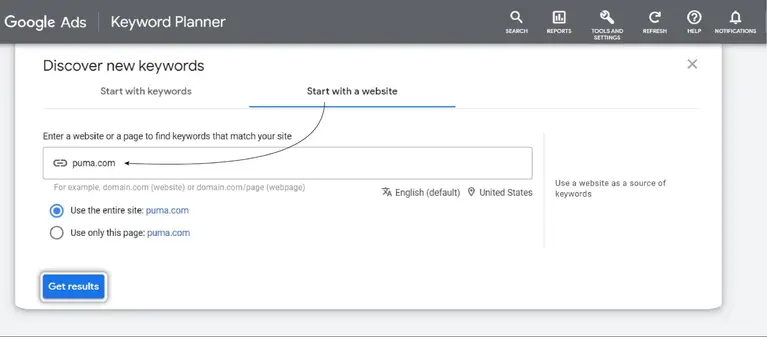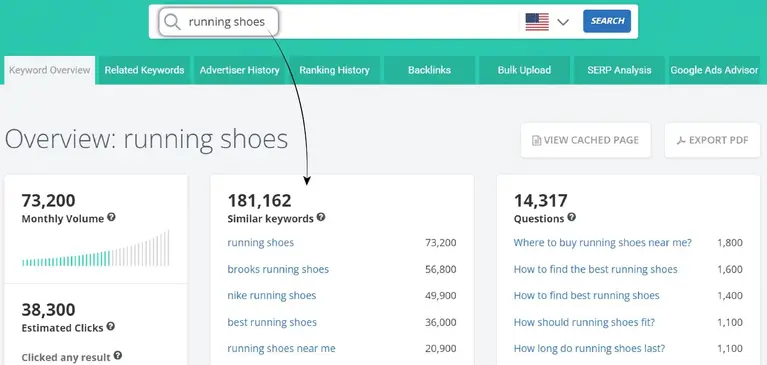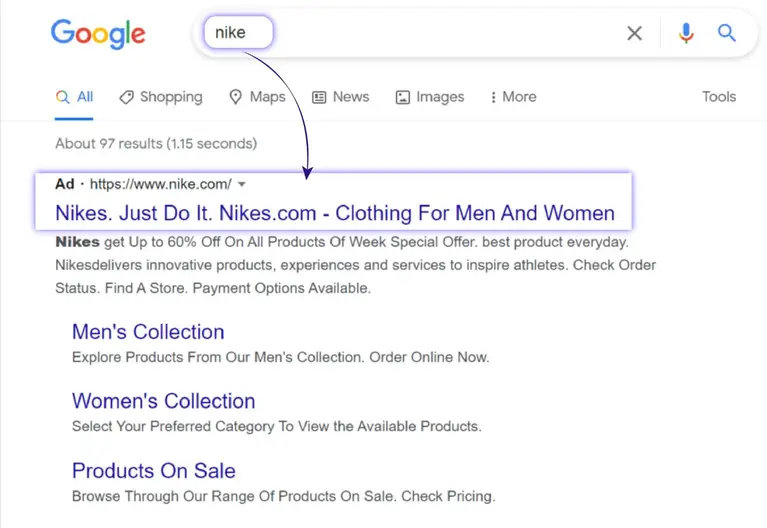
How to Find the Best Keywords for Your PPC Campaign?
PPC is one of the most common types of advertising. Search engines receive a large influx of traffic due to a brand's PPC campaigns. In layman's terms, you pay a small fee to the search engine every time your ad clicks.
This can vary depending on factors, such as the placement of the advertisement, the number of days it must appear on the SERP, and much more.
Some brands may think it is a cost, but when you spend $5 on a click and earn $50 or $500 in sales, the amount you paid for the click appears insignificant.
However, creating a perfect PPC campaign takes time and effort; keyword research is one of the most basic yet important aspects of a good PPC campaign.
7 PPC Keyword Research Tips
1. Start With Google Autocomplete
This Google tool assists marketers in locating the most popular keyword phrases on the SERP. By default, it is intended to assist researchers in locating trending keywords.
When someone types a root keyword, Google returns all suggestions related to the keyword by completing the phrase, and people almost always click one of them.

This demonstrates how accurate the bot is in showing researchers exactly what people are looking for.
- Using Google autocomplete will tell you what people are looking for and the type of content available for the query.
- This free tool is a must-have when researching keywords for your PPC campaign.
- When Google finds there aren't enough phrases, the keyword has less traction, and people aren't searching for it.
2. Establish Your Goals Before Your Research
Before you begin keyword research, you must first establish goals for your PPC campaign.
Setting up an effective strategy can assist you in boosting your brand and gaining new leads. When done correctly, you can expect a 50% or higher return on your investment.
Consider questions such as, "What do I hope to achieve with this campaign?" What metric should I prioritize? And so forth.
- You must first assess your company's needs in the expanding sector. Define attainable long-term and short-term goals.
- First, concentrate on increasing site traffic through CTR, increasing leads through keywords, and improving brand awareness.
- Answer The Public can help you find efficient keyword-related searches. The below screenshot shows an example of a wide range of keywords it offers.

This simple and free tool deconstructs searches and provides an easy-to-understand separation of related search terms.
3. Tap Your Competitors' Keywords
If you notice that your competitors are performing well in PPC, they likely have the best and most appropriate keyword research strategy. You can simply repeat your competitors' success mantra until you get it right.
There are also a plethora of tools available to assist you in identifying the most effective keywords for your brand rather than guessing what works and what does not.
Another advantage is that you don't have to pay anything to get the keywords right if you see what works for them.
- Use Keyword Planner for this. Under 'Find new keywords,' type your competitor's website or any site you want to explore. Then click 'Get Ideas.' The below screenshot shows how it looks.

- You can also find high-intent keywords through Wordstream or Buzzsumo.
- Sort your keywords into small groups. For instance, you can group them under brand or generic. This also helps in a better ad.
4. Use Long-Tail Keywords
There are two types of keywords for keyword research: long-tail keywords and short-tail keywords.
Many businesses undervalue the importance of long-tail keywords. For example, a florist may be attempting to obtain the appropriate keywords.
Flowers for weddings is a good example of a short tail keyword. In this case, a long-tail keyword would be "affordable bouquets to buy for wedding" or "order rose bouquets online for wedding." Because many businesses use short-tail keywords, they are also highly competitive.
Tools like Soovle offer plenty of long-tail keywords trending on various platforms like Google, YouTube, Bing, etc.

On the other hand, long-tail keywords have a lot of room for inclusion when the content is written correctly.
- Long-tail keywords are likely to indicate a desire to make a purchase, so include them in your website and PPC campaign.
- Long-tail keyword search traffic is primarily for purchases, adding numbers to your sales funnel.
- Ubersuggest is a great tool for finding long-tail keywords for your PPC research.
5. Use Efficient Tools
You don't have to guess which keywords will work best for you and which will not. When developing a PPC campaign, you must use effective keyword research tools.
Numerous free and paid tools are available to help you find the best keywords for your brand while also understanding what works best for your competitors. You can use the following tools:
- Google Keyword Planner - It is a free tool by Google and is trusted by many. It is user-friendly, and all you have to do is check for keywords under "Discover new keywords" in the tool.
- Spyfu is a competitor analysis tool that will help you understand what best works for your competitors. It is a paid app but helps you find a solution through analysis and is best for experienced SEO experts. The screenshot below shows how it offers keywords and related keywords, search volume, and, surprisingly, the topics in the form of “questions”.

- The Keyword Tool generates around 750 suggestions per keyword and works similar to that Google's autocomplete. It is extremely user-friendly and works with 129 domains from Google.
6. Explore Seasonal Keywords
When conducting keyword research for your PPC campaign, you should consider another factor.
If you own a company whose products or services you believe have a seasonality factor, you should also try to incorporate them.
You can probably think of some keywords that you can use to promote them during that period.
For example, if you own a bakery, you can perfectly pair your cakes and other desserts with holidays such as the holiday season, Christmas, or New Year's. The below image shows the trend of a seasonal keyword.

- Use Google Trends for this to find seasonal keywords. This free tool helps you find what's trending for a particular keyword phrase.
- At the bottom, the Google Trends page shows spiked query, which shows intended questions from people related to that topic.
- SimilarWeb is another great tool for finding seasonal keywords.
Read: 11 Powerful Ways to Use Google Trends for SEO
7. Go Beyond Tools To Have A Strategy For Your PPC That Works
It's not just the tools that will always come in handy. It's a good idea to talk to people in the industry and learn how things work for the best results. Speak with actual users of your solution. They are, in fact, your customers. Here are some extra hints:
- To maximize the benefit of appearing on the first page, use the same keywords for organic and paid searches.
- Branded keywords assist you in obtaining the best results. Marketers frequently overlook this but keep in mind that people will also search for your brand name directly rather than other intended keywords. This is why even popular brands like Nike run PPC to connect with their audience quickly.

- First, use keyword research tools to identify purchase-ready and high-intent keywords before developing a proper PPC marketing strategy.
PPC Keyword Research - FAQs
1. What Factors Contribute To A Successful PPC Campaign?
PPC is an essential component of any marketing campaign, especially if you want to establish a large brand.
A good PPC campaign begins with optimizing your website, then building an effective strategy with your brand goals in mind and implementing it using the appropriate keywords.
2. What Is The Average PPC Ad Spend?
Ad spending, also known as advertising spending, is the amount of money you have available to set up an ad on a network within your budget. It is the amount of money you are willing to spend over a year on various networks to have your ads featured or clicked.
You, as a marketer, have control over how the ad money is spent. It could be everything put into just one network, such as Google, or spread across multiple networks, such as Facebook, Instagram, etc.
3. Where Can You Use PPC Ads For Advertising?
PPC ads are mostly used for search engine results pages (SERPs). Third-party websites and social media are also good places to place your PPC ads.
Many companies and marketers will concentrate their efforts on specific platforms such as Facebook, Bing, Google, Instagram, LinkedIn, YouTube, and Twitter.
4. What Factors Influence PPC Expenses?
The cost of running a PPC campaign is determined by various factors such as bid and targeting. Your bid is the amount you are willing to pay for the position you want on a SERP. Demographics play a larger role in targeting.
If you bid on a competitive keyword, you are doing so to target a specific demographic.
Key Takeaways
- Improve the effectiveness of your keyword research strategy.
- Incorporate branded and seasonal keywords into your PPC keyword list.
- Before assuming the most likely keywords for your brand, conduct keyword research using the most up-to-date and efficient tools.
- Use competitive analysis tools to determine which keywords produce the best results for your competitors.
- Examine the keyword metrics for your keywords.
- Set specific goals and a budget to create a successful PPC campaign.
ABOUT THE AUTHOR:
Brice Decker

Brice has been handling marketing projects for more than 12 years and he is providing consulting services on SEO, Social Media and PPC. He has a huge expertise in working at large corporations including Accenture Interactive & PwC Digital Services.
ABOUT THE AUTHOR:
Brice Decker

Brice has been handling marketing projects for more than 12 years and he is providing consulting services on SEO, Social Media and PPC. He has a huge expertise in working at large corporations including Accenture Interactive & PwC Digital Services.
Related Post
How to Rebrand Your Business Without Losing SEO?